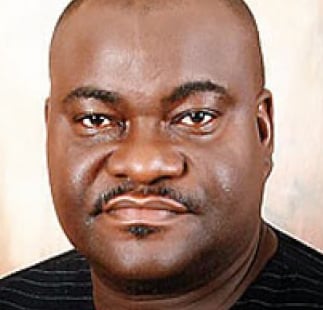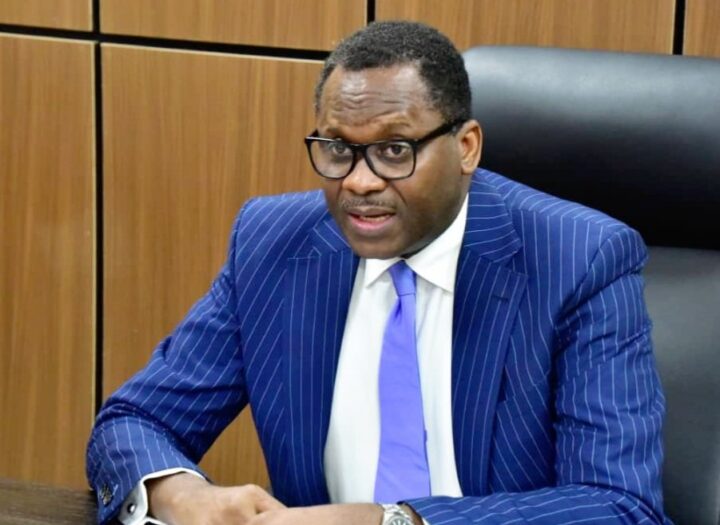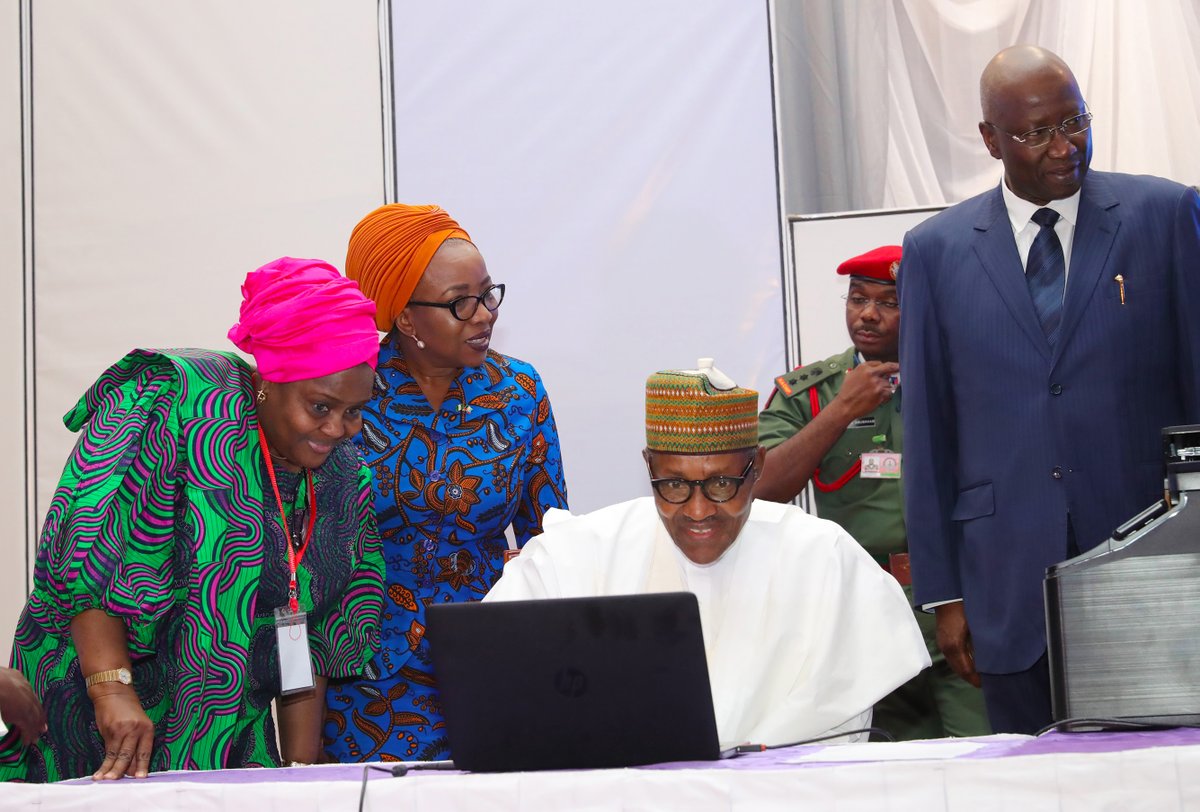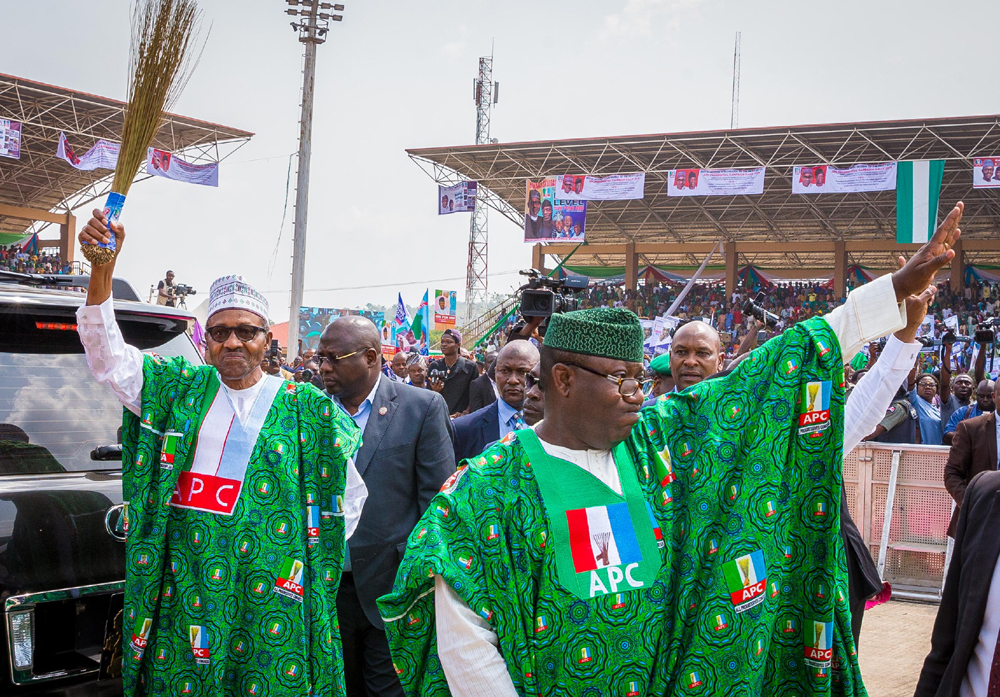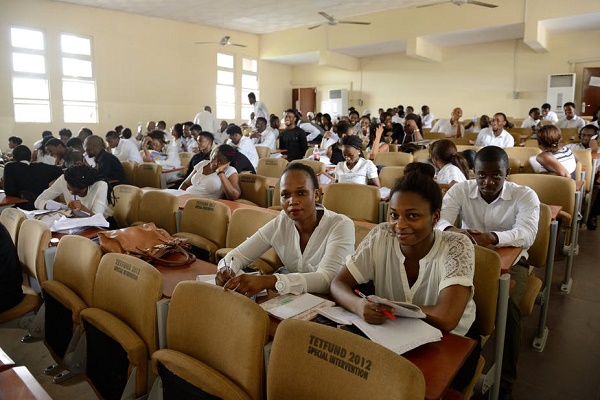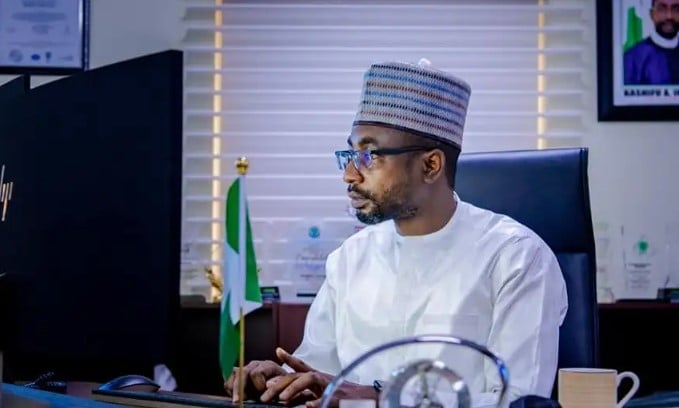He is not the prototype Nigerian big man or politician who has erected barricades, boundaries and boulders between himself and the public he serves on one hand. He hasn’t placed hedges and gulfs between him and his constituents either. He is not one of those who gloat in triumphalism and ego tripping as they take in images of guests in their waiting rooms, on the monitors of their close circuit cameras. He is available, accessible, and amiable; demystifying protocol in many instances to underscore his pragmatism. He can be intolerant of red-tapism. And you are most likely to find him in his trademark corporate attire, which has defined his endeavours and enterprise, into the fourth decade now. He is humble, courteous, and cosmopolitan as you will notice presently, even on your first encounter with him.
Until his appointment as director-general of the erstwhile Consumer Protection Council (CPC) in January 2018, he was a private, quiet, diligent attorney and solicitor. He has since re-engineered the CPC into a more pointed, more proactive, consumer-targeted Federal Competition and Consumer Protection Commission (FCCPC). The new FCCPC is designed to promote market competition, protect consumers from errant service providers and lead in seeking redress for the violation of consumer rights. The re-calibration of the mandate of the new FCCPC necessitated the re-designation of his office to that of the executive vice chairman of the commission (EVC). Before he was invited to add value to the administration of President Muhammadu Buhari, he shuttled between Nigeria and the United States of America (USA) where he had thriving practices and was regularly called up for intricate, knotty legal briefs.
At various times, he was affiliated with the defunct Rims Merchant Bank and Associated Properties and Trust Plc, both in Lagos. This was before he made forays into the USA where he first served as a partner at Thomas and Irukera, and subsequently with partners, Attorneys and Counsellors LLC, both in Chicago. He will subsequently become a partner with Simmon Cooper Partners in Lagos, Nigeria’s economic hub and erstwhile administrative capital. Landmark matters he was engaged in include those of the federal government’s privatisation exercise; the Nigerian Electricity Regulatory Commission, (NERC) and the oil block bid rounds respectively. He has equally functioned as a legal consultant to the federal government and oil companies in extra-territorial litigations, among a book-length of judicial participations.
Babatunde Ayokunle Irukera, however, lost his preferred unobtrusive anonymity following his appointment into the public service about three and half years ago. His schedule thrusts him on the frontlines in defence of the hapless consumer from the searing claws and gruelling grips of motley service providers. Ours is a sociocultural environment where people are attuned to merely shake their heads in disbelief and throw up their hands in despair in the face of glaring below-par service. Irukera’s brief principally, however, is to ginger consumers across the spectrum, to insist on being served properly and satisfactorily. He is thus giving our typically reticent folks a new voice, different from the subsisting acquiescence. And he is also standing bravely up to the demands of his responsibilities like a real warrior in the line of battle.
Advertisement
Barely months in office in early August 2018, Irukera led his organisation to partner with the National Agency for Food, Drug Administration and Control (NAFDAC) to seal off popular Lagos-based Krispy Kreme Doughnuts. The company was found to have extended the expiry dates of its doughnut mix and fillings, which Irukera’s FCCPC believed unfair to consumers and potentially injurious to their health. A few days later, the FCCPC secured the injunction of a federal high court restraining the South African terrestrial television service, Multichoice Nigeria Ltd, from hiking the cost of its services. In other instances, the FCCPC has compelled banks to refund illegal deductions from the accounts of their customers where monies so creamed off constitute part of the ever-rising profits of such financial institutions.
Under Irukera, the FCCPC has also been in the trenches with the masses over poor services rendered by various electricity distribution companies, notably the Abuja Electricity Distribution Company (AEDC) and its Ikeja counterpart (IKEDC). Sharing his personal experience in 2020, Irukera said he procured N50,000 worth of energy but was not connected to electricity for several hours. Elsewhere, the FCCPC chief executive has also called out the Port Harcourt Electricity Distribution Company (PHEDC) for disconnecting consumers from the source of power supply without a 10-day prior notice from the date of bill delivery. He described the services of the PHEDC to states under its coverage as “oppressive and outrageous”.
Irukera’s mantra has consistently oscillated around the deployment of all the powers in the lawbooks to protect consumer rights. And he is never shy of taking the battles to the doorsteps of erring institutions, privately or publicly owned, irrespective of potential personal risks or misconceptions. He recently upbraided operators in the power sector for non-compliance with the regulations of the Nigerian Electricity Regulatory Commission (NERC). Such is the novel vibrancy, maybe militancy too, which Irukera’s milieu has brought to bear on the FCCPC. More than ever before, the organisation equally hosts regular consumer complaints’ fora at various locations across the country. By so doing, the government is brought closer to the people. They are also enlightened to know that their voices can be heard in high places, away from the deafening din of the marketplace.
Advertisement
Less than a year into his stint in the public service, Irukera’s good works had compelled attention towards him as a competent contestant for elective office in his home state, Kogi. His constituents wanted him to take a shot at the governorship of the state. Sober, clear-headed, erudite, and passionate about his geocultural roots, he was considered a good fit to potentially elevate governance in a state so massively endowed, but which had serially put forward its dregs, even when the stakes were high. With the quality and diversity of human capital, the abundance of mineral resources and agrarian capital, with the intersection of Nigeria’s two largest rivers right at the heart of Kogi state, he believed he could galvanise development in the state if given a chance.
In a state which has raised the bar of electoral barbarism tinctured by state-orchestrated, daylight aerial gun attacks from a police helicopter directed at innocent voters in a queue, circumspection prevailed. Yes, in a state where kinsmen of the sitting governor confirmed that his 2019 reelection was brazenly procured by the barrel of the gun, a “feat” popularised by the song with the ta-ta-ta-ta-ta refrain, it was better to err on the side of caution. There will be other opportunities in the future. The present, unfortunately, remains the innocent victim of the manner of gun-butt politics played in some parts of our beloved country.
For the determination, courage and tenacity Irukera has displayed in public service, you will be surprised that he is of royal ascendancy. His father, Oba Ayodele Irukera, a retired university administrator, was in 2014, formally installed as the Elegbe of Egbe, Yagba West local government area of Kogi state. It is a first-class traditional office. Egbe is synonymous with pre-independence missionary activities, which culminated in the establishment of the popular Titcombe College and the Evangelical Churches Winning All (ECWA) Hospital, respectively, in the community. Appellation-crazed characters would typically festoon their necks and wrists with dangling and drooping bead works in the public advertisement of their “royal-ness”. Not for Irukera who is content with his “non-aligned” description, much as he is rightly and deservedly a prince.
For him, delivering service with every altruism, impacting the helpless, and calling people’s attention to their rights under the law, are much more compelling than such mundane issues. He seems ever conscious of the third stanza of the old Nigerian national anthem, the 1960 “Nigeria we hail thee” song, which charges us to build a society where no man is oppressed. Tyranny, in the most innocuous, unsuspecting forms, as could be observed even in the deduction of inexplicable bank charges, must be forensically discovered, promptly reported and speedily addressed.
Advertisement
He is so unassuming, he will easily beat you to it if you both discussed a visit between yourselves and you delayed in taking the lead. Yes, he is cosmopolitan by orientation but thoroughly African by DNA. Technological sophistication enables us all to discover addresses and locations, just by the tab on a button. His long years abroad and his sojourn in the corporate world have not taken away his earthiness. He is donning a tee shirt this evening, one of those rare days he has an early day at work. The southpaw that he is, he prefers his oatmeal and okro soup in the same bowl, not succumbing to the chef-imposed “separation of powers,” between the main meal and its escort. This is Tunde Irukera, no fakery, no affectation. And Yagba, yes our own original variant of Yoruba, comes into the mix ever so regularly as we banter. He insists on walking you all the way to your car and waits to wave at you as you engage your gear. You can see the quintessential omoluabi essence around and about him.
Back home in Okunland, he keeps a keen eye on sociopolitical events and developments, offering guidance and assistance, most times away from public view. Coming from a part of the country where literacy is “the major industry,” Irukera is silently supporting the educational quests of many young people. He believes education opened the doors to the world for him and does his bit in giving back to society on this score. He has also helped neighbourhoods and communities with potable water by providing boreholes, weaning them off local streams and hand-dug wells. You will also find him on the list of willing subscribers to sundry humanitarian and communal causes.
Irukera was born September 4, 1968, in Kaduna, the headquarters of the primordial north-central state. He attended the University of Ilorin Staff School and the Federal Government College, Ilorin, between 1978 and 1985. He studied law at the Obafemi Awolowo University (OAU) with tap roots at the University of Ilorin between 1985 and 1989, proceeding to the Nigerian Law School, Lagos, from 1989 to 1990. He subsequently underwent the mandatory one-year National Youth Service Corps (NYSC) between 1990 and 1991. Consolidated in his pouch is a most eventful aggregate of three decades of legal practice across climes, across time. At 26, Irukera got married to his heartthrob, former Foluke Mesaiyete on May 14, 1994. The union is blessed with wonderful children, two sons and a daughter.
With the approach of another electoral cycle early next year, Irukera has made a quiet statement by not obtaining the nomination forms of any political party. His primary commitment is to deliver successfully on his subsisting brief. He wishes for that day when the average Nigerian will be wholly and totally liberated from the wiles of mischievous service providers. He wants our people to develop and exercise the capacity to speak up, soro soke, in the face of bullying service mediums. He desires for them to know that the FCCPC is right behind them all the way, as they exercise their rights to be diligently and satisfactorily served. He will be glad to don his legal regalia in their defence if push comes to shove.
Advertisement
Olusunle (PhD), poet, journalist, scholar and author is a Member of the Nigerian Guild of Editors (NGE)
Advertisement
Views expressed by contributors are strictly personal and not of TheCable.
Add a comment
